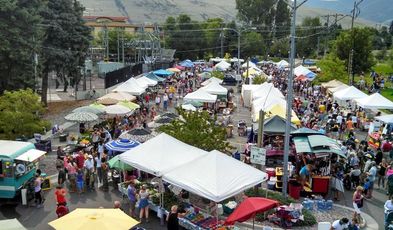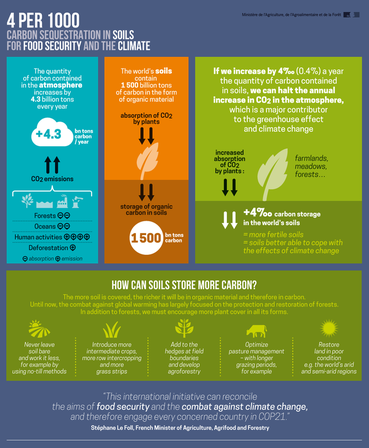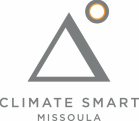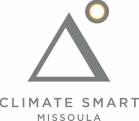|
Is it just me, or has it been an especially busy spring? Just in the last few weeks, we’ve had Earth Week, the People’s Climate March and Rally, the Missoula in Motion Commuter Challenge (still going!), and Missoula Gives – whew! So much good stuff happening. These great events remind me how grateful I am to live in a community that’s so connected to nature and passionate about sustainability and climate resilience. Thanks, Missoula, for being so awesome!  Image Credit - Clark Fork Market: https://www.facebook.com/ClarkForkMarket/ Image Credit - Clark Fork Market: https://www.facebook.com/ClarkForkMarket/ That feeling of gratitude continued on Saturday when I headed down to the first farmers market of the season, and judging by the crowds, I wasn’t the only one excited about the market opening! When I moved to Missoula a few years ago, I couldn’t believe how active the local food scene was here, and the plethora of ways to connect with our local food system is still one of my favorite things about being a Missoulian. Last Thursday, at our May Climate Smart Monthly Meetup, we delved a little deeper into the climate connections with our local food and agriculture bucket, focusing this time on two different parts of the food system: the problem of wasted food, and thinking about soil as a climate solution.  When most of us think about the nexus between climate change and food, we often think first of agriculture – how climate change impacts threaten our agricultural economy, perhaps (see a recent Montana Farmers’ Union 2016 Report on Climate Change impact to Agricultural Economy in MT), or maybe how a warmer climate has already begun to shift plant hardiness zones. But another part of the food system – waste – has become a hot topic in terms of its climate implications. In the US, about 40% of food is wasted. 40%! Emitting potent and highly polluting methane gas, wasted food is responsible for over 8 percent of global greenhouse gas emissions – almost as much as the road transportation sector. In Missoula, some grocery stores and nonprofits are combating this problem by collaborating to divert perfectly edible food that’s past sell-by dates to people in need. But a lot of food – both pre- and post-consumer – still ends up in our landfill. In fact, wasted food and construction and demolition debris constitute HALF of our landfill! Clearly, we can do better at avoiding wasted food in the first place, but there’s also need for better access to composting facilities for food scraps and spoiled food, to stop wasting a valuable resource that could be cycled back into our local food system. This was one of the messages that emerged from recent community listening sessions as part of the process of developing a Zero Waste Plan for our city. Our friend Jeremy from Home Resource, who is assisting the City with this process, shared a little more about the Zero Waste Plan process, and we’re excited to see how wasted food factors in to the plan. (Until then, check out some of the ideas that came out of last year’s “Fate of the Plate” summit.) Related to the topic of composting, of course, is the point of composting in the first place: building soil quality. Soil and its potential to mitigate climate change has been another hot topic in the media lately – or at least a certain kind of media! When I was in grad school, I had the opportunity to go to Paris for the COP 21 climate change conference, and soil was getting a lot of attention there. The French government had launched a program they called “4 pour 1000,” based on scientific evidence that an average increase in soil carbon storage of merely 0.4 percent globally would be enough to stabilize annual global CO2 emissions. That’s pretty huge. (Want a primer on the soil-climate connection? Check out this short 4 minute video.) So what might that kind of carbon storage look like on a local level? Well, the first step to improving soil quality of agricultural lands is making sure that land is protected, especially as our city grows. A recent report by a UM grad student documented a 228% increase in Missoula County ag land that’s been developed over the last 50 years, alongside a population increase of 70%. Here in Missoula, the Community Food and Agriculture Coalition has been working on solutions that balance protection of agricultural land in Missoula County with development pressure. CFAC also supports local farmers – especially beginning farmers – with the tools they need to maintain their land for agricultural use. Bonnie, CFAC’s director, says there has been more interest lately among farmers in soil-building practices, but it can be hard, given that there aren’t many direct incentives for the types of smaller farms that are the majority in Western Montana. However, it’s also true that many local farmers already use sustainable practices that build soil quality and sequester carbon – such as cover cropping, applying compost, crop rotation, and pasture management strategies. We’d love to see the conversation about soil continue here – it’s truly a case of a climate solution that’s right under our feet! If soil quality is something you’d like to learn more about, you’re in luck: the Moon-Randolph Homestead is hosting a workshop on that topic next week! Everybody eats, so we all have a role to play in building a vibrant local food system built on healthy soil that closes the loop from field to fork to compost bin - whether it’s by supporting local farmers, advocating for ag land preservation, growing (and composting!) your own food, reducing wasted food, or all of the above! Such a food system not only bolsters our resilience to climate impacts, by making us more self-reliant and less vulnerable to disruptions of global food chains, but it also shrinks our carbon footprint while offering all kinds of environmental, economic and health benefits. Those are the kinds of climate solutions we like to see!
Here are a few resources if you’re interested in digging deeper into the world of local food, agriculture, and climate change:
4 Comments
|
AuthorsAbby Huseth Archives
July 2024
Categories
All
|

 RSS Feed
RSS Feed


